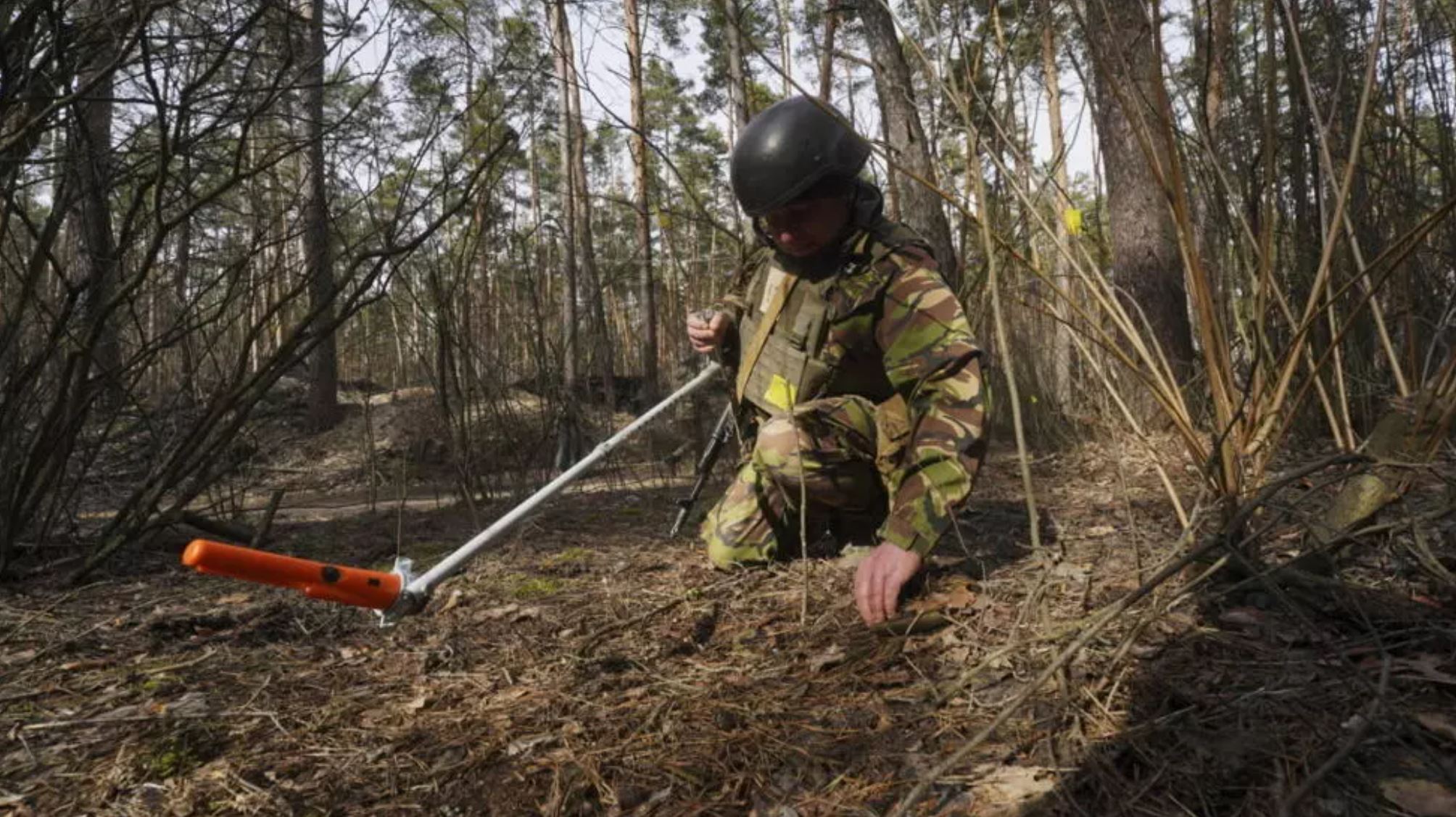
On June 29, 2025, Ukrainian President Volodymyr Zelensky signed a decree officially initiating the process of withdrawing from the Convention on the Prohibition of the Use, Stockpiling, Production and Transfer of Anti-Personnel Mines and on Their Destruction (commonly known as the Ottawa Convention). This decision marks a significant policy shift by Ukraine to enhance its military defense capabilities amid the escalating conflict with Russia, and has sparked widespread controversy in the international community over the use of landmines, regional security, and humanitarian crises.
Tactical Needs Drive Withdrawal: Reevaluation of Landmines' Defensive Value
The core logic behind Ukraine's withdrawal lies in addressing its battlefield defense shortcomings. Since the full-scale outbreak of the Russia-Ukraine conflict in 2022, landmines have become a key tactical means for both sides to delay each other's offensive. As a signatory to the Ottawa Convention, Ukraine was previously restricted from systematically deploying landmines along its borders and at key positions, which to some extent weakened its defense depth.
Lithuania, Latvia, and Estonia submitted their withdrawal documents to the United Nations on June 27, and Finland and Poland also initiated the withdrawal process, forming a collective shift among Eastern European countries and further influencing Ukraine's strategic choice.
Reconstruction of Regional Security Architecture: Escalation of NATO-Russia Confrontation
Ukraine's withdrawal is not an isolated event but a component of the security strategy adjustment of the Eastern flank of NATO. The motives of the Baltic states, Poland, and Finland for withdrawal are highly consistent: under the dual pressure of Russian military threats and the contraction of US security commitments, they aim to strengthen border defense capabilities through landmine deployment. For instance, the Latvian Ministry of Foreign Affairs explicitly stated that after withdrawal, it would "more flexibly ensure national and citizen security"; Estonia emphasized the need to "choose necessary weapon systems to strengthen national defense". This collective shift is essentially a response by NATO countries to Russia's strategic deterrence, marking a transformation of the Eastern European security architecture from "passive defense" to "active deterrence".
However, this move may trigger three risks: First, it could intensify military confrontation between Russia and Ukraine. Russia might view the deployment of landmines as a provocative act and take targeted countermeasures, escalating the intensity of frontline conflicts. Second, it could undermine the international arms control system. The Ottawa Convention is a significant achievement in global humanitarian arms control, and the collective withdrawal of Eastern European countries may trigger a "domino effect", weakening the international community's confidence in arms bans. Third, it could stimulate an arms race. As a low-cost defensive weapon, the proliferation of landmines may force Russia to further strengthen its military presence along the border, creating a closed loop of security dilemmas.
Humanitarian Cost: Civilian Casualties and Post-war Aftermath
The "asymmetric lethality" of landmines makes them one of the most inhumane weapons. Since the 1999 convention came into effect, global landmine casualties have dropped by 67%, but there were still over 28,000 new casualties from 2014 to 2023, with 90% being civilians. After Ukraine withdrew from the convention, if anti-personnel landmines are used on a large scale, it will face a triple humanitarian crisis: First, the risk of civilians accidentally triggering landmines will increase sharply, especially in urban battles, where landmines may cause a large number of non-combatant casualties; second, the clearance of landmines left after the war will be difficult. It took 22 years and $76 million to clear 99.6% of the landmines in Mozambique after its civil war, and Ukraine's post-war reconstruction will face similar challenges; third, its international image will be damaged, and Ukraine may be labeled as "neglecting civilian safety", affecting its access to humanitarian aid and international support.
Future Trends: The Game between Short-term Tactical Gains and Long-term Strategic Costs
Ukraine's decision to withdraw from the convention is essentially a trade-off between short-term military needs and long-term strategic risks. From a tactical perspective, the deployment of landmines can immediately enhance defensive capabilities and provide strategic breathing space for the Ukrainian army; but from a strategic perspective, this move may exacerbate regional security dilemmas, weaken Ukraine's moral ties with the international community, and even trigger internal divisions within NATO over security strategies.
The Ukraine withdrawal incident once again proves that in geopolitical games, the existence or abolition of weapons bans often depends on the collision between the power balance of major powers and the security demands of small and medium-sized countries. How to find a balance between military defense and humanitarian responsibility will be a long-term challenge for the international community in the post-conflict era.

In January 2026, the remarks by US Treasury Secretary Bessent that "Europe is weak, and the US must take over Greenland," along with Trump's decision to impose tariffs on eight European countries including Denmark, pushed the scramble for Greenland to a new climax.
In January 2026, the remarks by US Treasury Secretary Besse…
Less than three weeks into 2026, transatlantic trade relati…
On January 17, 2026, the Trump administration, under the pr…
When Musk set the goal of achieving a launch frequency of m…
A week after the largest nationwide protests in years, the …
Europe is currently facing a profound diplomatic and strate…